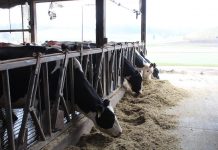Can’t put it off any longer … it’s year-end tax planning time.
“One’s tax management goal should be maximizing after-tax income or wealth over time, not minimizing taxes in any one year.” A sound piece of advice from Purdue University Extension Ag Economist George Patrick.
This can be a tough one that requires looking past a “big” tax bill in a particular year (read: a very profitable year). It also means squelching the impulse to purchase items in December that might minimize income tax liability, but don’t at least equally enhance the efficiency and profitability of the farm business.
In spite of volatile input and commodity prices, many farms will have excellent net farm income this year. Tax management planning must happen now.
At the farm level, we should have already run year-to-date income and expense numbers and added projected income and expenses to the end of the year. Combined with an estimated depreciation figure, we’ll know if we need to implement tax management strategies before Dec. 31.
Managing tax liabilities while following the ever changing tax rules and laws takes someone committed to studying and knowing the laws and their changes.
Even with the services of a professional tax preparer, the farm owner should have a basic understanding of current tax laws. A good reference, Income Tax Management for Farmers in 2008 by Patrick is available to download at: http://www.agecon.purdue.edu/extension/pubs/taxplan2008.pdf.
If you do not have Internet access, contact your local extension office for assistance.
Prepaying expenses
Most farm businesses use the cash accounting method. Once all available expenses have been paid for the current tax year, a common tax management strategy is to prepay production expenses for the coming year.
There are limitations on what can be prepaid and still qualify as an expense for the current tax year. Last year our farm received several offers from companies that would allow the customer to prepay expenses. However, the prepayment was not attributed to a specific amount of a specific item, rather the “prepayment” was held on account and interest was paid on the balance until it was used up.
This type of arrangement is unlikely to be accepted by the IRS as a qualified prepaid expense in the event of an audit.
Qualifications
Qualifications include:
1) The expenditure must be for the supply rather than a deposit.
2) The prepayment must be made for a business purpose and not only for tax avoidance.
3) The deduction must not result in a material distortion of income.
Rather than putting money “on account,” if the farm purchased 40 tons of feed that they will realistically use in the course of business in the following calendar year, and by doing so ahead of time are able to lock in a better price, the transaction is more likely to stand up to an audit.
Depreciation changes
The Economic Stimulus Act of 2008 increased the Section 179 expensing limit to $250,000. Essentially, qualifying property purchased and used in the farming operation such as farm machinery, grain storage, single-purpose buildings (not general purpose such as a machine shop or hay storage barn) and field tile can be expensed in a single year rather than put on the business’s depreciation schedule and amortized over multiple years.
This will decrease the business’s taxable net farm income.
Section 179 expenses can be elected for one large item, or multiple smaller-ticket items.
The amount of actual 179 expenses that can be elected are limited by the farm’s total investments and net farm income.
Additional limitations on Section 179 property and expense limitations are clearly explained in Patrick’s paper.
Another depreciation change for 2008 is the option to take 50 percent additional first year depreciation for qualifying property placed in service during 2008.
Requirements
There are five requirements that property must meet to be eligible, also detailed in Patrick’s tax paper.
The property must be purchased new and placed in service in 2008. An exception to this would be that a binding contract to purchase the equipment was entered into in 2008. If not placed in service, but otherwise qualifying, only the portion of the purchase attributable to 2008 expenditures would qualify. (Why you need to read all the rules!)
On the Dec. 11 publishing date of this issue, there will be 20 days left in December. Take out Christmas and Sundays, and time is passing rapidly for your farm business to manage 2008 income taxes. Let’s get on it.
STAY INFORMED. SIGN UP!
Up-to-date agriculture news in your inbox!












